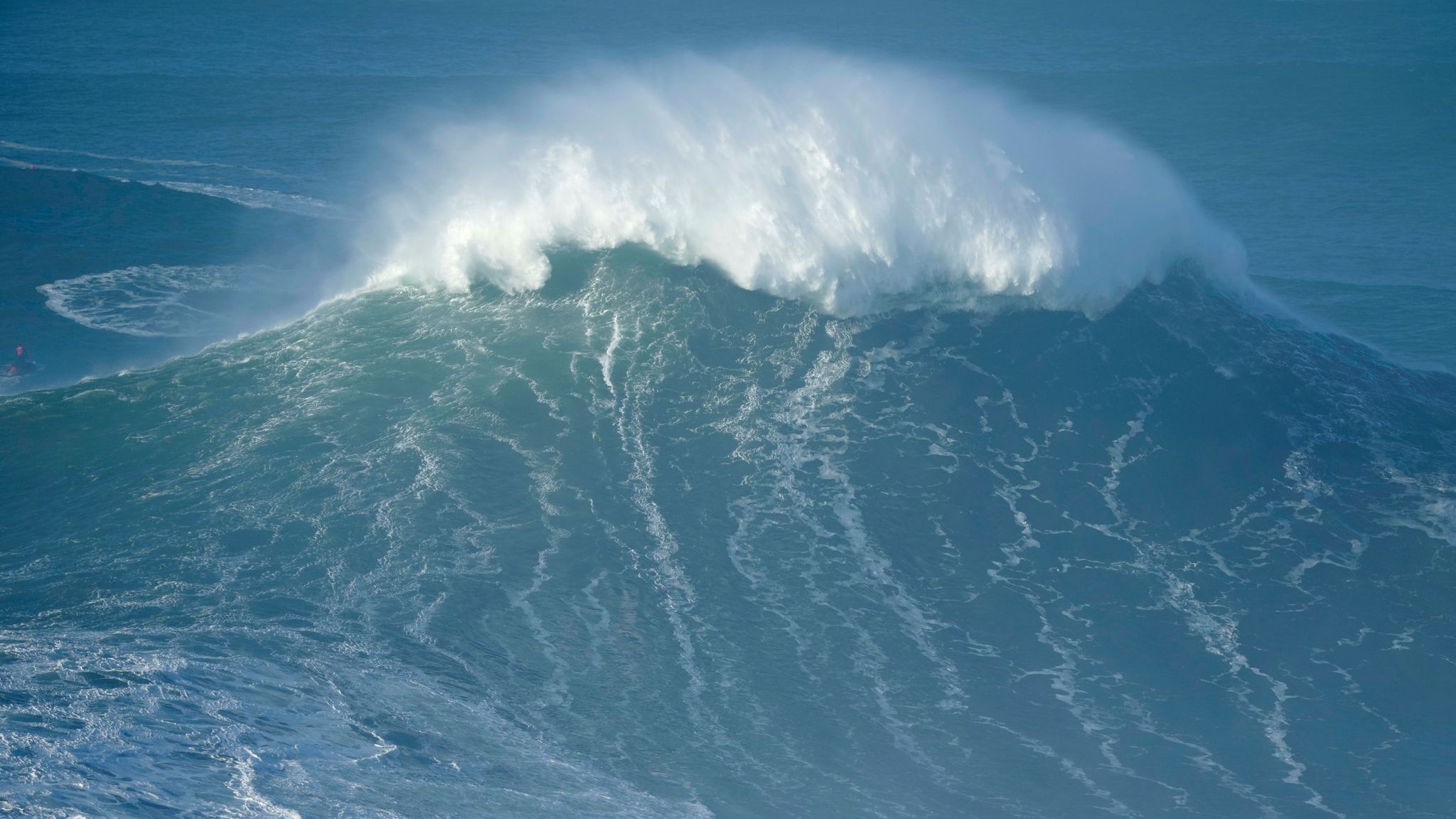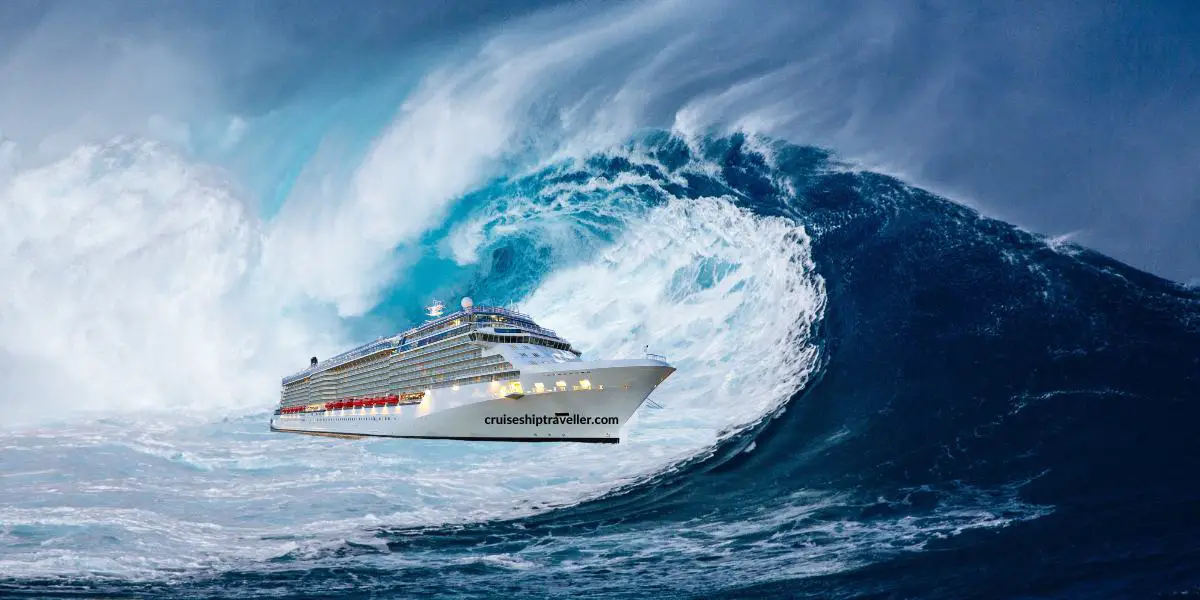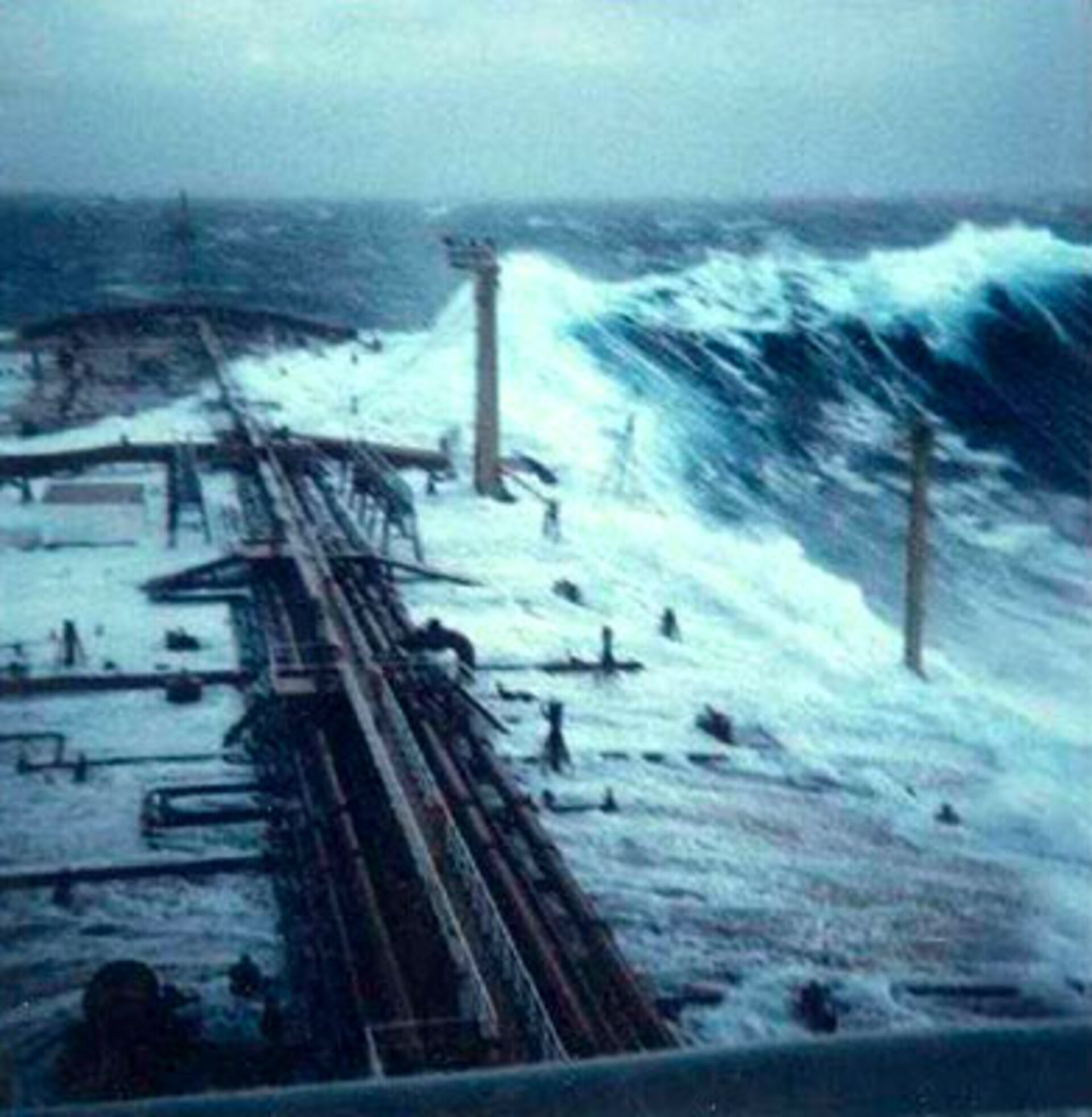Simple Info About Can You Survive A Rogue Wave

The Unpredictable Ocean — Rogue Waves and Your Chances
1. What Exactly Is a Rogue Wave, Anyway?
Ever imagine the ocean just... tripping? That's kind of what a rogue wave is. Unlike your average swell, these monsters are disproportionately large and unexpected. They're not caused by earthquakes or tsunamis (though those are scary too!). Instead, rogue waves are believed to be born from constructive interference, where multiple smaller waves combine in just the right (or wrong!) way to create a single, enormous wave. Think of it like everyone in a stadium doing "the wave" all at the same peak point at the same time — thats a lot of energy focused in one spot.
These aren't your garden-variety breakers. We're talking waves that can be twice the size of surrounding waves, sometimes even bigger! And they appear seemingly out of nowhere. Imagine sailing along, everything is fine, then BAM! A wall of water taller than a building looms over you. Terrifying, right? Theyre notoriously difficult to predict, adding to their deadly reputation. For centuries, sailors dismissed tales of these giant waves as drunken sailors' stories, but science has confirmed their existence and documented their devastating power.
So, where do these brutes lurk? Well, they can technically appear anywhere, but some areas are more prone to them. Strong currents, like the Agulhas Current off the coast of South Africa, seem to breed them. Other areas with converging currents or storm systems can also be hotspots. Thats because the complex interplay of ocean dynamics in those areas provide the ideal environment for smaller waves to merge and amplify into these mega-waves.
The scariest part? They dont discriminate. Big ships, small boats, it doesn't matter. The sheer force of a rogue wave can overwhelm even the most seaworthy vessels. We're talking about enough power to capsize ships, damage structures, and even break ships in half. While modern technology has helped us learn more about these phenomena, their inherent unpredictability still makes them a significant threat.

Rogue Waves A Little Understood Oceanic Horror Old As Time YouTube
Can You Actually Survive a Rogue Wave?
2. Your Survival Odds — Separating Fact from Fiction
Okay, let's get real. Surviving a rogue wave is not a guaranteed thing. It's more like a game of chance heavily weighted against you. Your chances depend on many factors, including the size of the wave, the type of vessel you're in (or if youre just swimming, God help you), and frankly, a whole lot of luck. The sheer power packed into these waves is immense, capable of crushing even large ships. But that doesn't mean survival is impossible.
Think about it: the larger the ship, the better equipped it is to withstand the impact, although even massive container ships have succumbed to rogue waves. Smaller vessels, like fishing boats or sailboats, are significantly more vulnerable. What about those brave souls in kayaks or surfboards? Well, lets just say their odds are slim. The truth is, a rogue wave is not something you want to encounter regardless of the size of your vessel. Avoiding them entirely is the best plan of action, which, as we all know, is easier said than done.
So, what can you do if you find yourself facing a towering wall of water? One key aspect is your immediate reaction. Securing yourself and anything that could become a projectile is crucial. Think of loose equipment, tools, or even furniture. Hold on tight to something stable — a railing, a sturdy fixture — and brace for impact. The goal is to avoid being thrown around like a ragdoll and minimize the risk of injury.
And this is where luck comes into play. A direct hit is obviously the worst-case scenario. If the wave strikes at an angle, it might lessen the force somewhat. Some argue that pointing the bow of the ship into the wave can help, but this is debatable and depends heavily on the specific circumstances. Ultimately, there's no magic bullet. Surviving a rogue wave often involves a combination of preparation, quick thinking, and a hefty dose of good fortune.

Preparation is Key — What You Can Do
3. Tips and Strategies for Staying Safe at Sea
Alright, so you can't control the ocean, but you can control how prepared you are. First and foremost, stay informed. Check weather forecasts and sea conditions before heading out. Pay attention to warnings about potential wave activity or unstable weather patterns. Understanding the risks is the first step in mitigating them. And remember, sometimes the best decision is to simply stay in port.
Ensure your vessel is properly maintained and equipped for the conditions you expect to encounter. This includes having appropriate safety gear, such as life jackets, flares, and a reliable communication system. A well-maintained ship is far more likely to withstand extreme conditions than one that's neglected. Think of it like preventative medicine for your boat — addressing minor issues now can prevent major catastrophes later.
Develop a comprehensive safety plan and practice it with your crew. Everyone on board should know what to do in an emergency, including how to secure the vessel, use safety equipment, and communicate for help. Regular drills can help instill muscle memory and ensure everyone reacts quickly and effectively in a crisis. It's the nautical equivalent of knowing where the exits are in a building during a fire.
Learn how to recognize the signs of an approaching rogue wave, if possible. This is admittedly difficult, as they often appear without warning. However, some sailors report observing unusual wave patterns or a sudden drop in sea level before a rogue wave strikes. While these signs are not always present, being vigilant and aware of your surroundings can potentially provide a few precious seconds of warning.

Technology to the Rescue? — Current Research and Detection Methods
4. The Science of Predicting the Unpredictable
Scientists and oceanographers are constantly working to better understand and predict rogue waves. It's a challenging task, as these waves are inherently chaotic and unpredictable. However, advancements in technology and modeling are offering some hope. They're using things like satellite radar, wave buoys, and sophisticated computer models to analyze ocean conditions and identify potential hotspots for rogue wave formation. The goal is to provide early warnings to ships at sea, allowing them to avoid these dangerous areas.
One promising area of research is focused on identifying specific wave patterns that precede the formation of rogue waves. By analyzing the behavior of smaller waves, scientists hope to detect subtle indicators that a larger wave is about to form. It's like trying to predict a volcanic eruption by monitoring seismic activity — the more data you collect, the better your chances of detecting warning signs.
The development of more accurate wave forecasting models is also crucial. These models use data from various sources, including weather forecasts, satellite observations, and oceanographic sensors, to simulate wave behavior and predict the likelihood of rogue wave formation. The more accurate these models become, the better equipped sailors will be to make informed decisions about their routes and safety precautions.
Of course, even with the best technology, predicting rogue waves with 100% accuracy is likely impossible. Their chaotic nature makes them inherently difficult to predict. However, ongoing research is steadily improving our understanding of these phenomena, and hopefully, in the future, we'll have more reliable tools for detecting and avoiding them.

Threatening Even Large Ships Unraveling The Mystery Of Colossal Rogue
Real Stories — Accounts of Rogue Wave Encounters
5. Tales from the Sea — Survivors and the Lost
Reading about rogue waves is one thing, but hearing firsthand accounts from those who have encountered them is a whole different level of chilling. There are countless stories of sailors and passengers who have faced these monstrous waves and lived to tell the tale. These stories offer valuable insights into the raw power of rogue waves, as well as the importance of preparation and quick thinking. One recurring theme is the sheer speed and suddenness with which these waves appear. Survivors often describe seeing a massive wall of water looming over them, giving them only seconds to react.
Many accounts describe the overwhelming force of the impact, which can capsize vessels, damage structures, and even throw people overboard. Some survivors credit their survival to sheer luck, while others point to specific actions they took, such as securing themselves and bracing for impact. Regardless of the specific details, these stories underscore the importance of being prepared and staying vigilant at sea. One captain recounted his experience navigating through what looked like a normal swell, only to be blindsided by a rogue wave that almost rolled his ship over entirely. He emphasized the importance of constantly monitoring weather patterns and being prepared for the unexpected.
Sadly, not all rogue wave encounters have happy endings. There are also countless stories of ships that have been lost at sea, with no survivors to tell the tale. These tragedies serve as a stark reminder of the deadly potential of rogue waves and the importance of taking them seriously. One notorious example is the MS Mnchen, a cargo ship that disappeared in the North Atlantic in 1978. While the exact cause of its sinking is still debated, many experts believe it was struck by a rogue wave. The ship was never found, and the loss of life was devastating.
These real-life accounts paint a vivid picture of the dangers posed by rogue waves. They highlight the importance of respecting the power of the ocean, being prepared for the unexpected, and staying vigilant at all times. While technology and research are helping us better understand these phenomena, it's crucial to remember that the ocean remains a wild and unpredictable force of nature.

Rogue Waves Gulf Of Mexico
FAQ
6. Your Burning Questions, Finally Answered
Still have questions about rogue waves? You're not alone! Here are some of the most frequently asked questions, answered in plain English:
Q: Can you predict rogue waves?A: Not with certainty, unfortunately. Scientists are working on it, but rogue waves are inherently unpredictable. We can identify areas where they're more likely to occur, but giving specific warnings is still a challenge.
Q: What's the best thing to do if you see a rogue wave coming?A: Secure yourself! Grab onto something stable, brace for impact, and try to avoid being thrown around. If you're on a boat, securing loose objects is also crucial.
Q: Are rogue waves the same as tsunamis?A: Nope! Tsunamis are caused by underwater earthquakes or landslides. Rogue waves are formed by the convergence of smaller waves.
Q: Are some boats safer than others in a rogue wave?A: Generally, larger, more seaworthy vessels have a better chance of surviving a rogue wave than smaller boats. But even large ships can be overwhelmed by a sufficiently large wave.